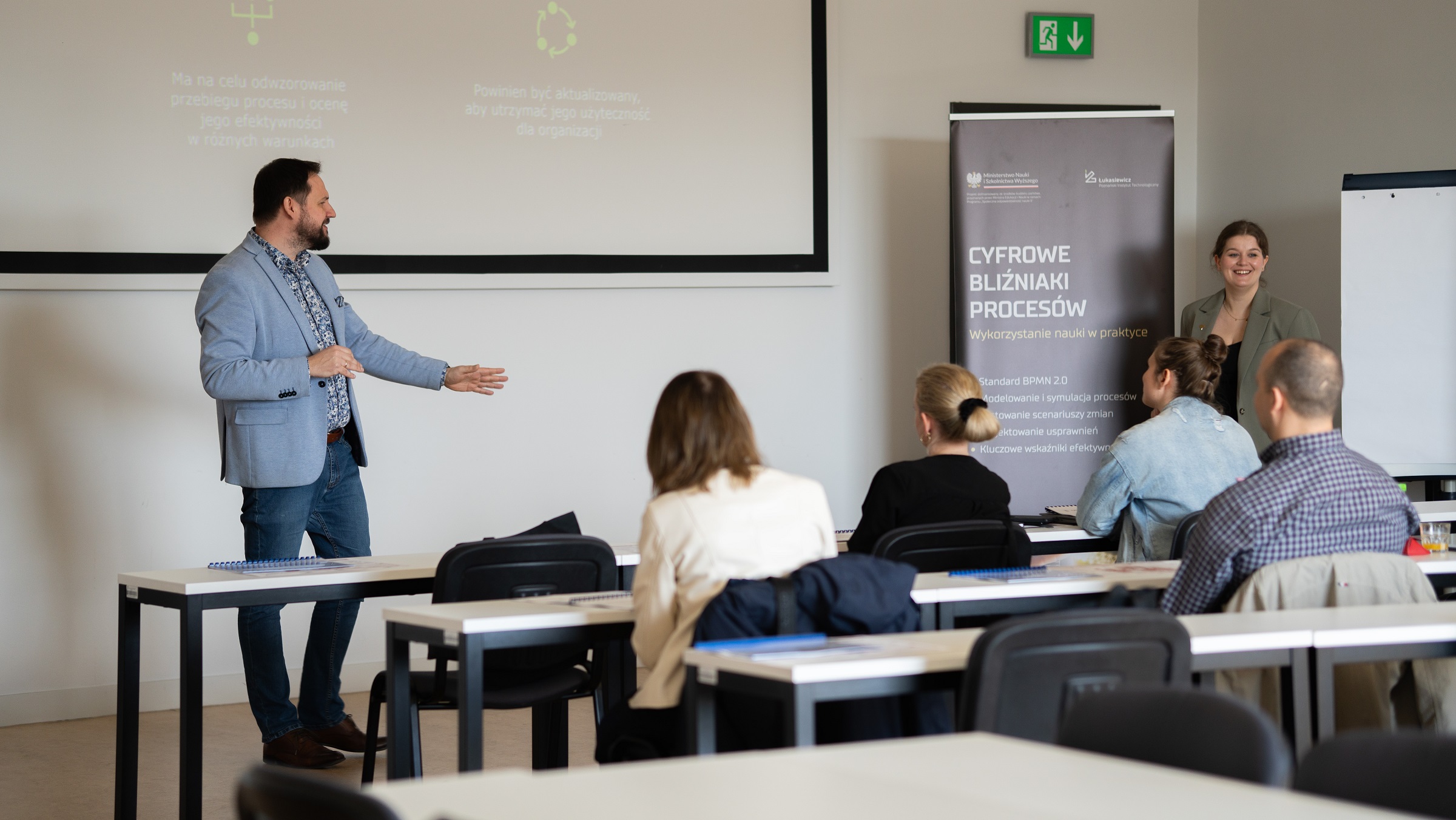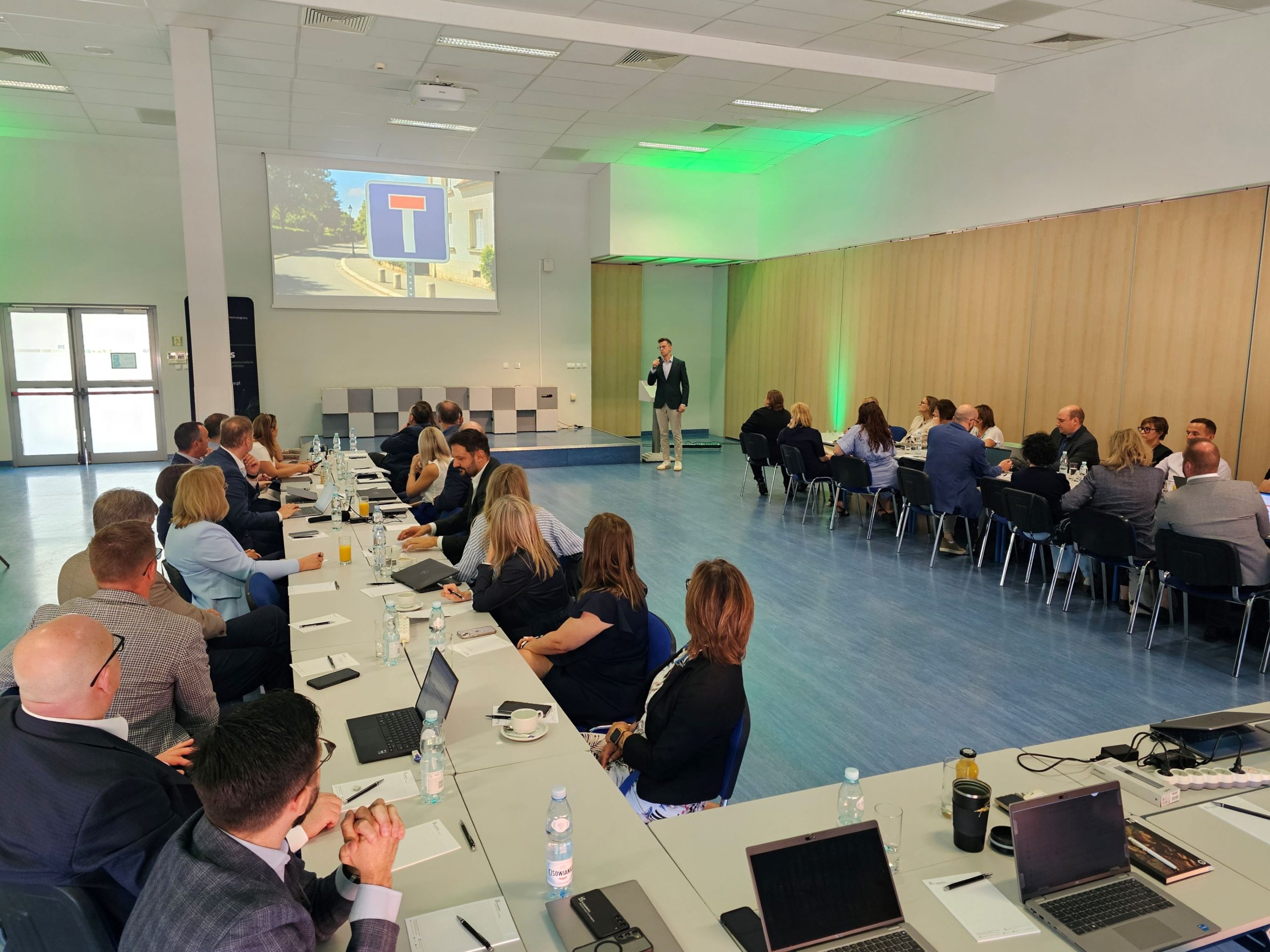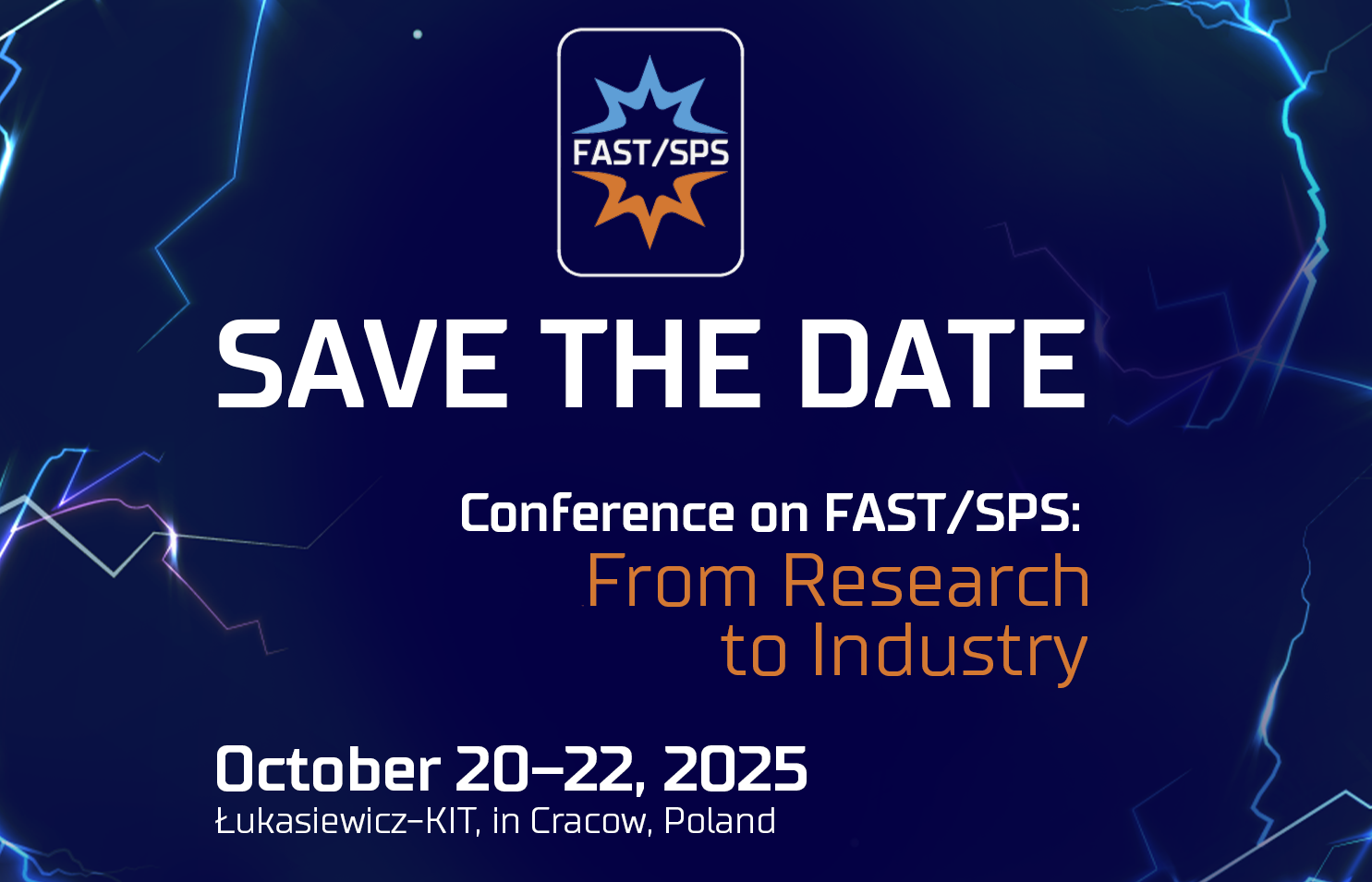The success of the project on digital twins

Almost a hundred people took part in workshops on digital twins of processes organized by Łukasiewicz – PIT. The success of the project is evidenced by the fact that it will be repeated. There will be new workshops, the topics of which have been expanded to include HRI, i.e., the aspect of human-robot collaboration, and work on a platform for modeling and simulation of processes, which was developed by our Institute.
The training courses were held as part of the popularisation project ‘Digital twins of processes – Applying science in practice (business, scientific, academic)’ co-financed from the state budget, granted by the Minister of Science and Higher Education as part of the ‘Social Responsibility of Science II’ programme.
Not only did they familiarise participants with modern digital technologies, but they also enabled them to gain practical knowledge of business process modelling methods and the tools designed for this purpose. They also learned about the theoretical and practical issues related to the use of digital twins, in particular digital twins of processes, i.e. solutions that are becoming increasingly important in the era of digital transformation.
How did the project proceed?
The main objective of the project was to promote knowledge about the practical application of process twins, i.e. digital replicas of real processes taking place in organisations. This approach makes it possible to analyse and simulate changes before incurring the costs of their implementation.
The training programme was designed for participants from Poland and abroad, representing both business and scientific circles.
As part of the project, eight two-day workshops were organised, six of which were held in Polish and two in English. A total of 96 participants took part in the training courses. Each training course consisted of two days of intensive classes, covering both theory and practice. On the first day, participants learned about the creation and use of digital twins of processes and the basics of business process modelling in the BPMN 2.0 standard. The second day was devoted to the practical application of the acquired knowledge through independent process modelling and case study analysis.
The classes were conducted by a team of experienced specialists with many years of experience in the digital transformation of organisations: Filip Nowak, Paulina Młodawska, Jacek Krzywy,
Witold Statkiewicz and Adam Szablewski from the Łukasiewicz – PIT Centre for Digital Transformation.
But that’s not the end of it…
The completed project confirmed that the topic of digital twins of processes is in line with the current needs of scientific and business communities. The workshops, combining theory with practice, created a space for acquiring specific skills and exchanging perspectives between participants from different countries and industries. The participants’ opinions and the results of the knowledge tests clearly show that the proposed programme not only increased their competences, but also inspired them to further explore the subject.
Due to the high level of interest and positive reception, the next edition of the project, ‘Technologies of the Future – The Use of Science in Digital Transformation,’ will start soon. The scope of the programme has been expanded to include aspects related to the field of HRI (Human-Robot Interaction). Another new feature will be the interactive ‘Procesownik’ platform, which will enable participants to independently model business processes and verify the correctness and logical consistency of the models they create. Thanks to this, participants will not only gain knowledge, but also a practical tool to support the development of their skills in the area of digital transformation.




